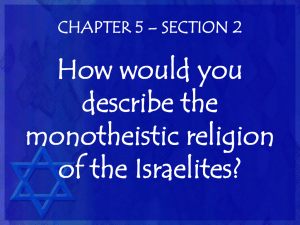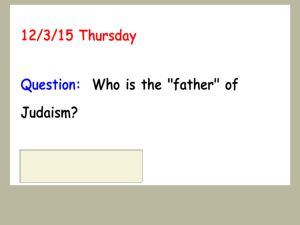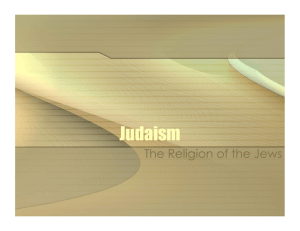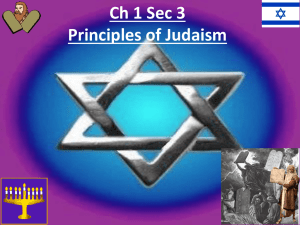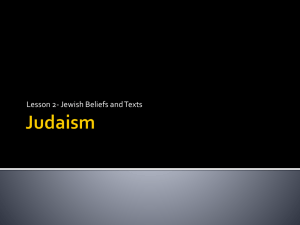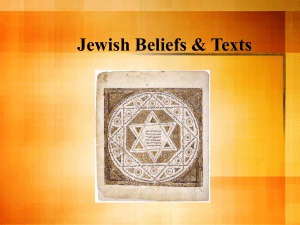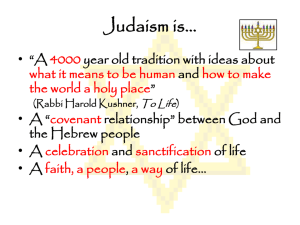QUIZ-RABBINIC PERIOD - Congregation Kol Ami
advertisement
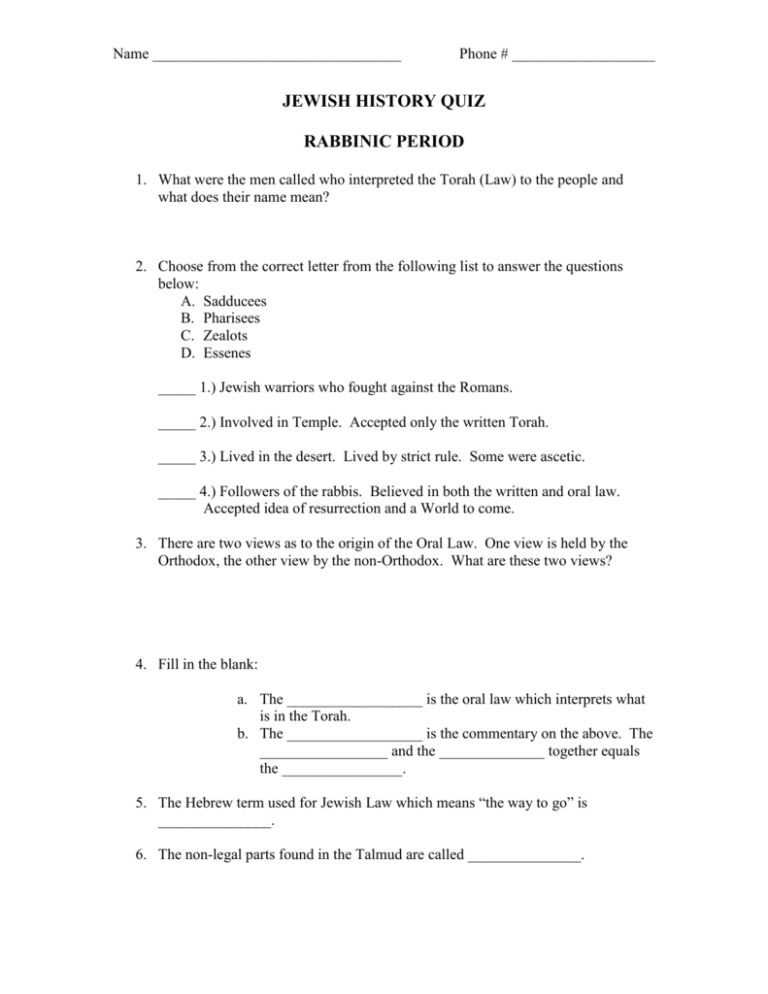
Name _________________________________ Phone # ___________________ JEWISH HISTORY QUIZ RABBINIC PERIOD 1. What were the men called who interpreted the Torah (Law) to the people and what does their name mean? 2. Choose from the correct letter from the following list to answer the questions below: A. Sadducees B. Pharisees C. Zealots D. Essenes _____ 1.) Jewish warriors who fought against the Romans. _____ 2.) Involved in Temple. Accepted only the written Torah. _____ 3.) Lived in the desert. Lived by strict rule. Some were ascetic. _____ 4.) Followers of the rabbis. Believed in both the written and oral law. Accepted idea of resurrection and a World to come. 3. There are two views as to the origin of the Oral Law. One view is held by the Orthodox, the other view by the non-Orthodox. What are these two views? 4. Fill in the blank: a. The __________________ is the oral law which interprets what is in the Torah. b. The __________________ is the commentary on the above. The _________________ and the ______________ together equals the ________________. 5. The Hebrew term used for Jewish Law which means “the way to go” is _______________. 6. The non-legal parts found in the Talmud are called _______________. Name _________________________________ Phone # ___________________ 7. The Midrashim are explanations and interpretations of what is found in the Hebrew Bible. True or False? 8. Hillel told the pagan wanting to know the essence of Judaism the central teaching of Judaism is _____________________________________________________. 9. The rabbis believed within each person there was a Yetzer HaRa and a HaTov. In English, what are the rabbis talking about? 10. When Rabbi Akiba, the ignorant shepherd who began his studies at 40 and became a great scholar and teacher in Israel, was executed by the Romans, what were the last words said on his dying lips? 11. Christians call the Hebrew Bible the “Old Testament”. The Jews call the Hebrew Bible the _________________________________. 12. The first 5 books of the Bible are called the ______________________________. 13. The second part of the Hebrew Bible deals with the _______________________. CHRISTIANITY AND JUDAISM 14. What is the Jewish concept of the Messiah and tell why the Jews could not accept Jesus as the Jewish Messiah? 15. Jesus was a Christian who preached about love to the Jews. True or False? 16. In the early Jewish-Christian Church there was a conflict between Paul and James concerning the definition of what a Christian was. Explain these two views. 17. List some of the basic differences between Judaism and Christianity. Name _________________________________ Phone # ___________________ MEDIEVAL PERIOD 18. In Medieval society the Jews functioned as: (circle one) A. nobles B. priests C. merchants D. serfs 19. Present the Christian and the Jewish views of the Crusades. A. B. 20. Jews in Spain were given two choices at the end of the 14th century. What were these two choices: 21. A Jew in Spain who had converted to Catholicism and was outwardly a Catholic but still lived as a Jew secretly was called a/an ______________________. 22. Many Jews who had converted to Catholicism in Spain were later executed as heretics by the Spanish __________________. 23. In the 7th century, Mohammed founded the ________________ religion. A believer in this religion is called a _______________. 24. The great Jewish philosopher and rabbi Moses Maimonides taught that the highest form of Tzedakah (righteous act of giving) is _____________________________ ________________________________________________________________. Name _________________________________ Phone # ___________________ 25. Define: A. Sephardic Jews: B. Ashkenazic Jews: 26. Define the word Kabbalah. 27. Throughout the Middle Ages there were many Jews who claimed to be the Messiah, but they all failed in their mission. True or False? 28. What is the major book of Kabbalah? A. Tanach B. Zohar C. The book of Kabbalah D. Torah
